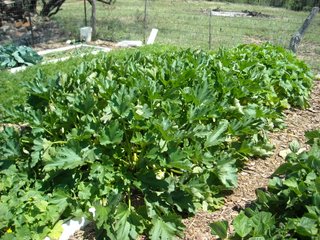
We didn’t know what to expect with our 2009 Spring garden, but the Lord has seen fit to provide us with plenty of water in our cistern with which to water the garden; and He has brought the increase, and what an increase! As me and my buddies Rogers and Hammerstein always say, “Zucchini is busting out all over!”
I went out to see what was available to harvest; and, boy, there was an abundance of zucchini ready to be picked:
I looked through our book, “Preserving Food Without Freezing or Canning” by The Gardeners & Farmers of Terre Vivante, to see if there were ways other than canning to preserve the zucchini. The book described a very easy, lactic fermentation method. I simply washed and grated the zucchini, skin and all, and put it into canning jars with a teaspoon of salt per pint alternating layers of zucchini and salt. Then I added water to each jar leaving 1″ head space, put on the lids and caps and……that’s it! I put the jars down in the root cellar and within days we had a very delicious and fresh tasting zucchini kraut:
I also read that drying zucchini is a very good way to preserve it. I was excited to be able to utilize the wonderful solar food dryer that Dave had made. So I cut up the zucchini into slices, and within a couple of days they were shriveled and crispy! They say you can eat them like potato chips with dip or use them in soups and casseroles.
Here they are put out to dry on trays in our solar food dehydrator:
Here are the dried chips after 1-2 days in the dehydrator (the orange looking pieces are apricots which turned out delicious as well!):
I preserved the dried zucchini chips in glass jars. And I didn’t have to use the pressure canner or a drop of propane!
I also harvested a bunch of yellow summer squash I was hoping to preserve. I read online that one woman didn’t like the “mushiness” of hot packed canned squash, so she and her family started raw packing it with no water. This way it could be dipped in egg and crumbs to fry it or be used in soups and casseroles. Well, I went ahead and tried it that way, and it worked great! I’m very excited to have found this method, which opens up a wider variety of ways to use squash in meals.
In addition to canning, I also processed some of the yellow summer squash with the lactic fermentation method, as I had done with the zucchini; and it turned out fresh and tasty as well, without any freezing or canning used.
What a huge blessing to be able to capture and preserve the freshness of these garden vegetables without canning or freezing. We are careful to thank God for the bounty of this harvest as well as His many spiritual provisions.
1 Cor. 3:6 – “I have planted, Apollos watered; but God gave the increase.”
Susan
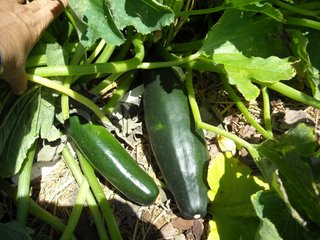
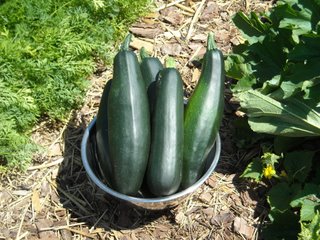
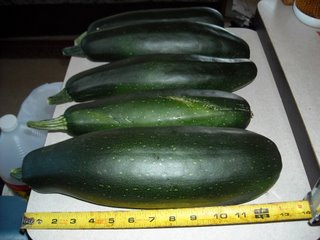
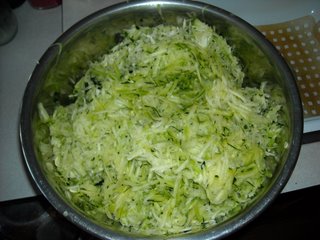
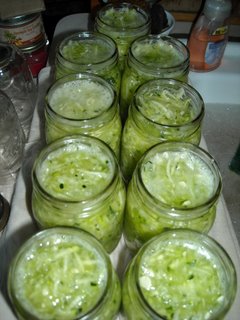
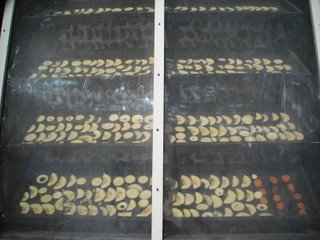
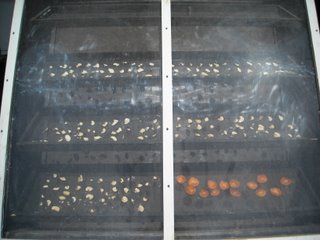
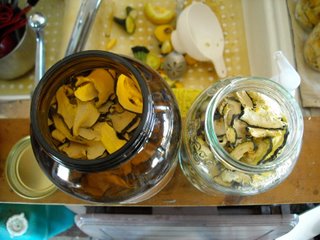
Another great post. After our now 10 month old was born I checked that book out from the library and learned so much from it. Unfortunately I never was able to finish it due to the time constraints of nursing a newborn. It is one that I need to purchase for our library, for sure.
I am so glad to see others lacto-fermenting and dehydrating fruits and veggies. I've long thought of canning as unsustainable in that it is so dependent on energy and jars and lids that you would have to go out and purchase regularly. Plus lacto-fermented foods have great health benefits from the probiotics and good bacteria available – just like yogurt!
We have spent a couple of "date nights" shelling peas and slicing strawberries for the dehydrator. With two little ones it is hard to squeeze in that extra time during the day, but once they are in bed it makes a great time for good conversation.
Blessings to you and David,
Shannon S.
Shannon,
Thanks very much for your comment. I agree with you that these preservation methods open up a new world of health benefits. I have struggled with candida over the years and really look forward to feeding my gut a lot more good bacteria. That book really is worth its weight in gold. I'm glad you have gotten some good info. from it as well.
I'll have to try strawberries on the dehydrator – that sounds really tasty. Dave said the apricots taste like a fruit roll-up. So many new things to try.
May God bless and keep you and yours. Thanks again!
Susan
I love to dehydrate my zucchini every year. I use it in spaghetti sauce, soups, etc. It is great! I also dehydrate yellow squash and peppers.
Hi Ginny,
Thank you for your comment. Do you or Shannon (or anyone else) have any recommendations on the best way to soften or re-hydrate your dried zucchini when putting it in pasta sauce, soups, etc. I put it in with a macaroni pasta dish recently and the zucchini chips were tasty but still a bit rubbery and chewy. Do you put them in water or perhaps simmer them longer in the dish? I would love any input on that.
Thanks again!
Susan
I just put it directly in the sauce or soup and cook it until it is done. Sometimes it is chewy and sometimes not. Oh, I forgot to add that I powder mine (it is not really like powder, but very, very small pieces). I don't use large pieces. I think to soften large pieces you would have to boil them for a while first.
Excellent info. Ginny. Do you "powder" yours before drying or just before you put it in a dish? And what is your process for cutting it up into tiny pieces? I really appreciate your input. Thanks!
Susan
Here is what I do, but it may not work without electricity. I quarter the zucchini, then slice them about 1/4 inch thick and dry them. Then I put them in a blender and powder them. There is some actual powder and some small pieces. I put it in jars with a little powdered milk tied in a small piece of cloth to keep it dry. Every few months, open the jar and smell and feel the powdered milk packet. I have had them absorb an inordinate amount of moisture and go bad. PEEE-YEW!!!
I suppose you could powder the dried zucchini by putting it in a bag and rolling a rolling pin over it or pounding it. I am going to have to try that this year and see what I get. I don't really need powder, but I really like the very, very tiny pieces.
By the way, dried peppers give SUCH a wonderful flavor to spaghetti/pizza/pasta sauce! 😀 I think that particular ingredient is what makes it for me.
Keep up the good work!
Ginny,
Wonderful – thanks!! We have just started harvesting our green pepper plants and I look forward to drying them as well! Much appreciated.
Susan
Can you give me more info on raw packing the summer squash? Are you saying that after you slice the squash, you pack them in the quart jar and then seal them without adding water to the quart jar? I didn't think the jar would seal without a liquid inside of the jar?So there is nothing inside of the jar but sliced summer squash and a little salt? How long did you process the jar and at what pressure?
Thanks-Laura
Hi Laura!
Thanks for your comment. Yes, I cut up the squash and put it into pint jars (quart jars are fine too) leaving 1" head space. Salt is not required but according to preference so I didn't use any. There is enough moisture in squash which will be drawn out during the canning process to provide enough liquid in the jar for a good seal. The squash doesn't get mushy as it might if you put water in it or hot pack it. Although, I just recently raw-packed some squash (meaning I didn't cook it before-hand but did add boiling water in the jars before I canned it) and it's not mushy at all but will go great in soups and casseroles.
I usually prepare my lids by bringing them to a boil and then immediately turning off the heat so they can sit in hot water for a few minutes and soften up the seal which seems to work well.
The canning directions called for 10 lbs. at 25 minutes for pints and 30 minutes for quarts. I can mine at 15 lbs. because we are above 1,000 feet but 10 lbs. should be fine for anything below that.
Following is the web address where I found the info. to which I referred in the blog post. http://findarticles.com/p/articles/mi_m1082/is_v29/ai_3792416/
I'm still a novice but am glad to try and assist you in any way I'm able. I hope your canning goes well!
Susan
Hey,
Every time I dehydrate something I think of you guys and your wonderful solar dehydrator. 😀 I have been busy drying zucchini, pepper, yellow squash, potatoes, and cabbage. I just want to encourage you and give you a little tip that I just discovered: blanching first. I have only done zucchini and peppers with any regularity until this year and I never did blanch anything. I did some potatoes and it was wonderful! I also blanched my last batch of zucchini and did not powder it. I am going to see if that makes it a little less chewy when rehydrated. You may already know this, but I thought I would share.
😀
Also! LOL! I opened one of my homemade dessicant packets and then I remembered that after having the last stinky powdered milk episode that I had changed to about a teaspoon of brown rice. It works very well. Just thought I would let you know. White rice might work just as well and that is cheaper. I think I will get a bag of white rice just for that purpose. Brown rice is for eating.
😀
Hi Ginny!
I have not tried blanching and appreciate the tip! I started cutting up my garden peppers and drying them after you mentioned it in a previous comment and love how well they dry and was amazed at the taste! So much flavor in just a little tiny piece of dried pepper.
And thanks for the rice tip, it makes a lot of sense.
Your comments are much appreciated!
Susan
Oh, I know! Peppers are my favorite thing to dehydrate! By the way, with the blanching, you don't have to blanch everything. I think peppers, tomatoes, onions, garlic, herbs, etc. don't need it. But, I thought I would try it with zucchini and yellow squash, because this year I was trying potatoes and they require blanching or they will turn black and inedible. I blanch by steaming. They say to blanch thouroughly, but don't cook through. I think it is a try it and see type of thing. With the potatoes, the Ball Blue Book said to blanch for two minutes, but I ended up having to blanch for about 10-12 minutes. They were nowhere near fully cooked, but they were beautifully dried. I am thinking that I like dehydrating better than canning. Stuff takes up so much less space and it can be done without fuel and it is ultimately more nutritious and it is lighter to carry and… and… Well, I think you get the picture. I would love to build a dehydrator like you all have one of these days.
Hope you had a profitable and enjoyable Lord's Day! I did.
😀
Great tip about the rice. I just used it and am pretty happy…yay 🙂